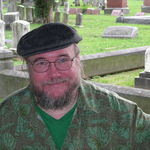
Warning: this story uses crude language, discusses private body parts, and is likely to upset prudes and the humor-impaired.
***
I had an adventure last night. You might not think the bathroom is a likely setting for an adventure, but as they say, shit happens.
When I got home, I was troubled by two distinct discomforts.
First, I felt like I had hemorrhoids. You know -- that itch, that feeling unclean down there, that need to give yourself a good wipe.
I also had pain in my lower back.
I was tired from sitting all day, which I’m sure had everything to do with both kinds of discomfort.
So I headed for the bathroom to get some relief.
First, I gave myself a good, cleansing, cool, wet wipe. Ahhhhhhhh.
Then, I grabbed a tube of Icy Hot and squirted some on the two middle fingers of my left hand.
Then, fatigue affected my brain. Instead of switching to low back mode, my brain remained in asshole mode.
I didn’t realize until after I’d done it that I had mistakenly wiped the Icy Hot on my tender asshole. I didn’t realize it, in other words, until my tender asshole was on fire.
Calling 911 is no help when your asshole is on fire. First of all, they’d just laugh at you. Plus, you’d need a very small fire truck that could climb stairs, and firemen and hoses as proportionately small in relation to you as, say, Tokyo is to Godzilla. So much for my fantasies of being rescued by a firefighter with a huge hose.
I grabbed another cool wet wipe and tried to clean off the blazing ointment. However, being wet, the wipe caused the ointment still on my hands to immediately soak through and, so to speak, fan the flames. So I tried using yet another wipe to get the ointment off of my hand.
Then, still burning, I pulled up my pants and went downstairs, where my partner was watching YouTube choral videos under headphones. I was now falling apart laughing, and it suddenly seemed more important to share this experience than to stop it.
Soon we were both helplessly cracking up as puffs of smoke rose from my incandescent bottom like signals designed to send a message to the Indian in the Village People.
“How,” you may ask, did we solve this problem?
We didn’t. In about another minute, the sensation calmed down to a not unpleasant warmth – or I got used to it, I’m not sure which. It was at worst a curious distraction from the Buffy reruns with which I spent the rest of the evening. Somebody kinky might even develop a taste for the sensation.
I think it’ll take awhile, though, before I can convince my partner to try it as a lubricant.
-- © 2010 by Jack Veasey
(All rights reserved. This work may not be reproduced or duplicated in any form without the author's written permission. )






































